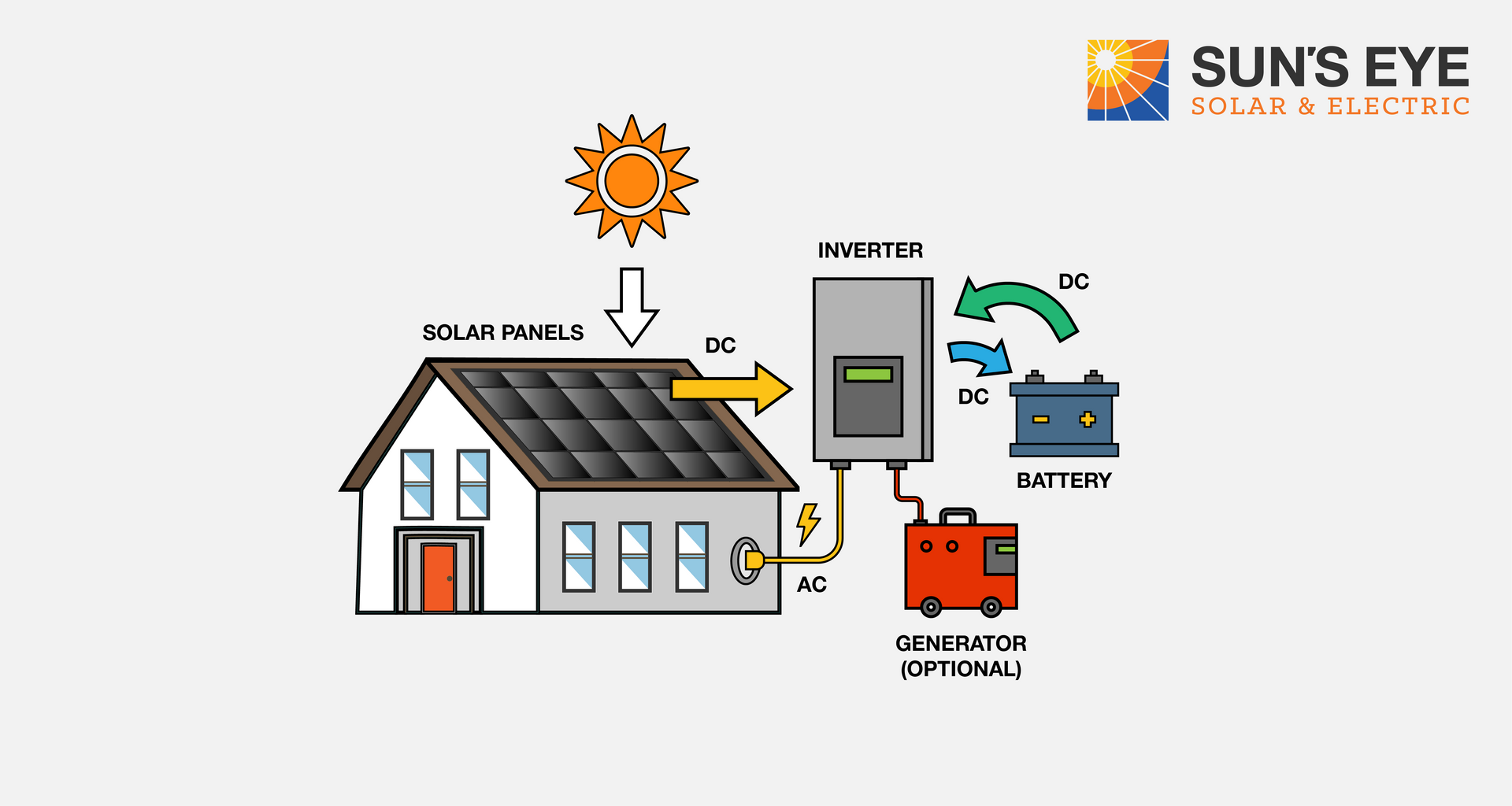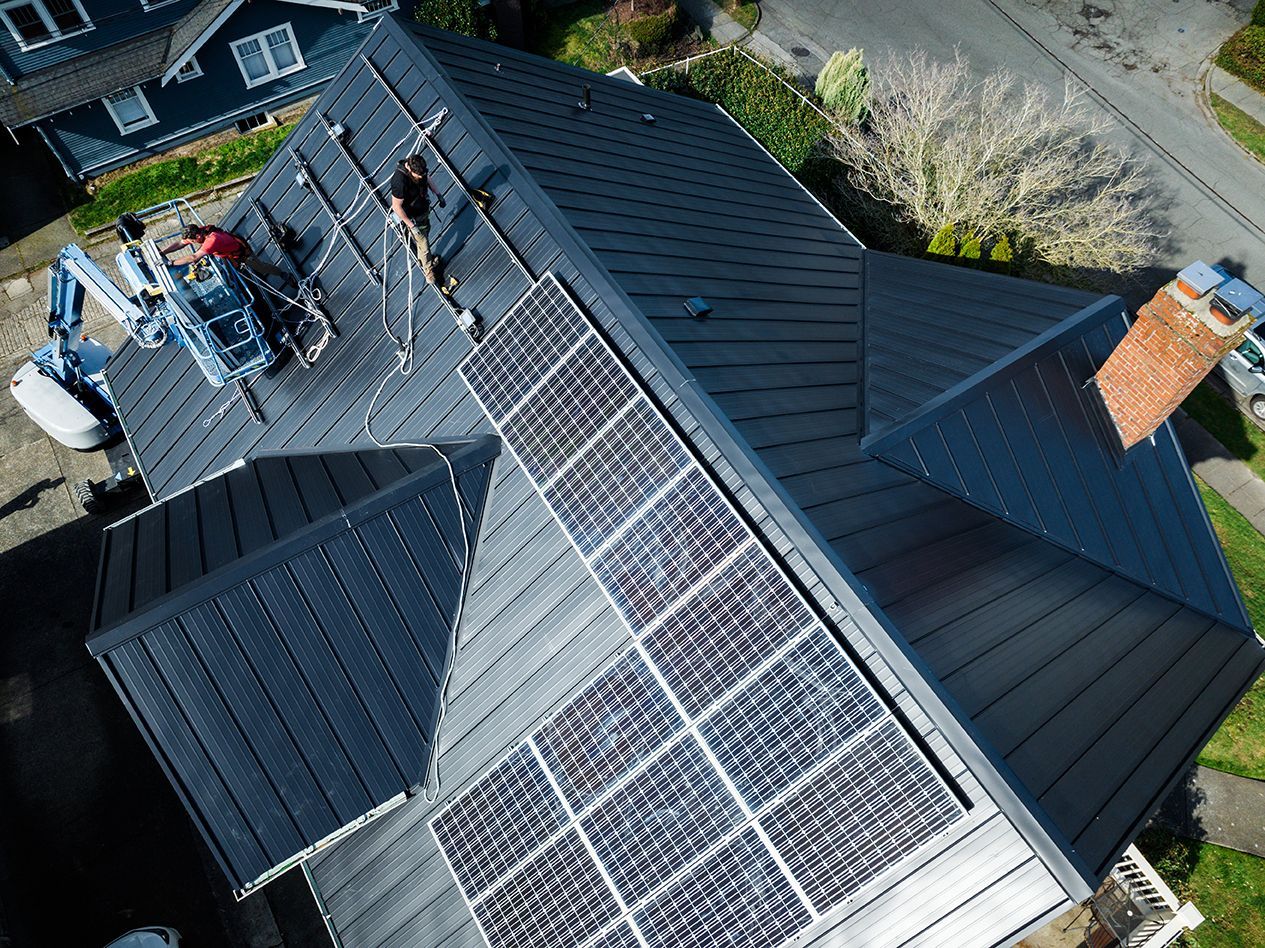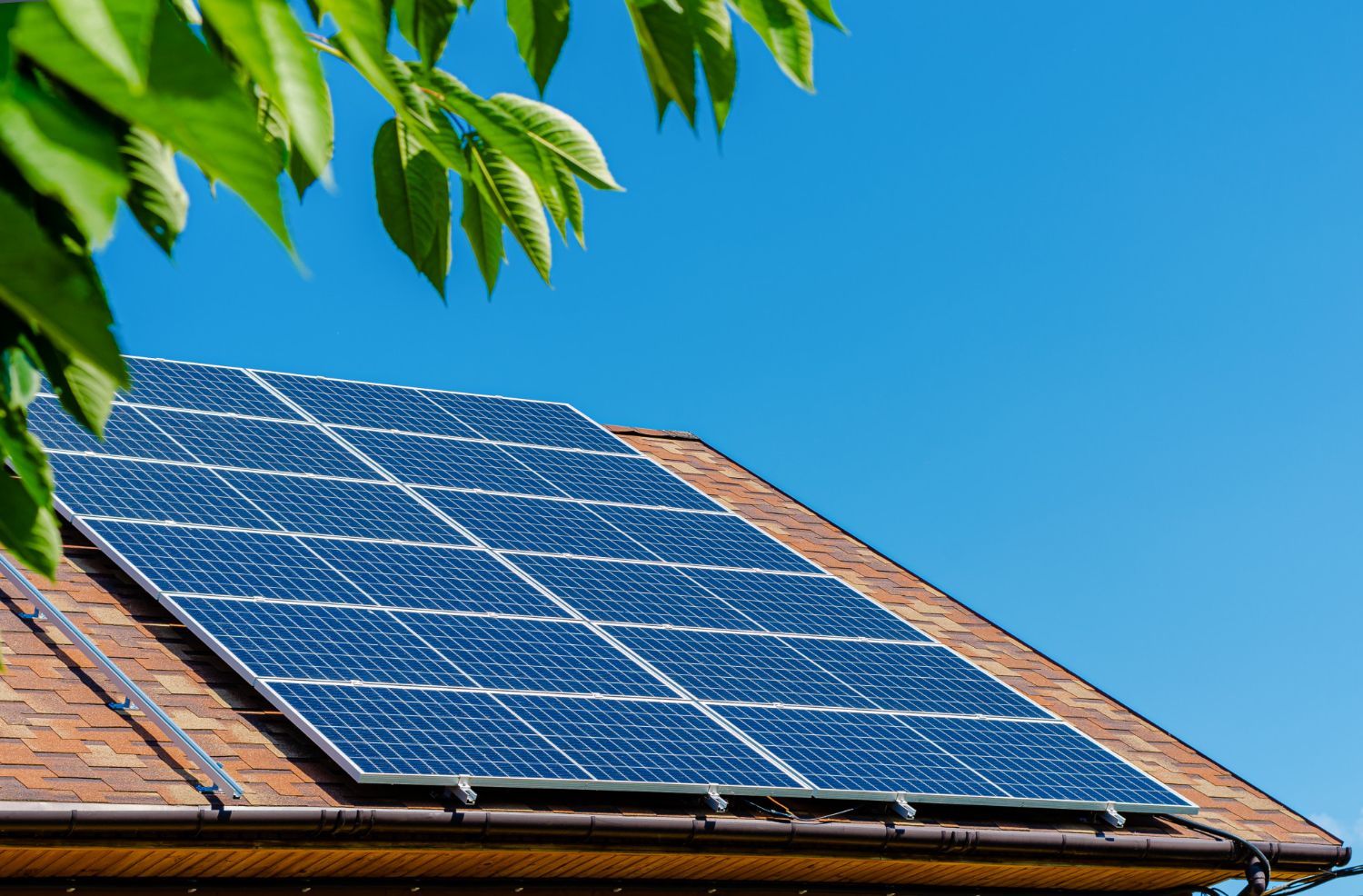Off-Grid Solar Installation: A Beginners Guide

Do You Need A Permit For Off-Grid Solar System?
Yes, in most places in Washington, you typically need a permit for off-grid solar installations. The specific requirements can vary depending on local regulations, building codes, and zoning laws. Permits are generally required to ensure that the system is safely and properly installed, meets all necessary standards, and complies with regulations regarding electrical systems, structural integrity, and safety. It's important to check with your local government or permitting office to understand the specific requirements for your area before starting an off-grid solar project. We typically work with our customers to ensure that all necessary permits are in order before the project begins.
Off-Grid Solar = More Conscientious Energy Use
You’re probably used to having access to unlimited power via the grid. Going off-grid limits the amount of power you can consume to the amount you can generate and store. Many people are surprised by how thoughtful they become about their own energy use once they go off-grid. Before installing a system, it is important to determine what your minimum power needs are to live comfortably.
Considering Your Electrical Use
To better understand your electrical use and needs, start by conducting a comprehensive energy audit. This involves tracking the power consumption of all appliances and devices over time to identify which ones use the most energy. By noting how much energy is used daily and during peak times, you can assess your overall energy consumption and determine your specific needs. Additionally, evaluating the efficiency of your appliances and considering any seasonal variations in energy use can provide a clearer picture of your total energy requirements. This detailed insight enables more accurate sizing of your off-grid solar system, ensuring it meets both current and future energy demands.
Determining the Voltage of Your System
Determining the voltage of your off-grid solar system involves assessing your energy needs and the efficiency of your setup. Generally, a 12-volt system is suitable for smaller applications like RVs or cabins with lower energy demands, while a 24-volt system is better for homes with higher daily consumption, ranging from 1,000 to 5,000 watts. Higher voltage systems, such as 48 volts, offer greater efficiency by reducing voltage loss in the wiring and allowing for longer cable runs with less energy loss. It’s crucial to match the voltage of your solar panels, battery bank, and inverter to ensure compatibility and optimize performance. By considering your total energy load, the distance between components, and the cost of components, you can select the most appropriate voltage for your off-grid solar system.
Battery Storage is a Necessity
Battery storage is essential in off-grid solar systems because it provides a reliable and consistent power supply when sunlight is unavailable, such as during cloudy days or nighttime. Unlike grid-tied systems that can draw electricity from the power grid, off-grid systems rely solely on the energy captured by solar panels and stored in batteries. This stored energy ensures that you have power for essential appliances and devices regardless of immediate solar generation. Additionally, battery storage helps manage fluctuations in solar production and energy demand, improving the overall stability and reliability of the power supply in off-grid settings. Without adequate battery storage, an off-grid solar system would be unable to meet energy needs consistently, especially during periods of low solar output.
Common off-grid solar battery types:
· Lithium solar batteries have the longest lifespan and often come with a 10-year manufacturer’s warranty.
· Lead-acid batteries have a shorter lifespan and require some maintenance. The upside is that they have a lower upfront cost and are easy to recycle.
· Sealed AGM batteries have a shorter lifespan than lithium batteries, but they don’t require regular maintenance like lead-acid batteries.
Do Off-Grid Systems Require Maintenance
Maintaining an off-grid solar system is crucial for ensuring its efficiency and longevity. Regular tasks include cleaning the solar panels to remove dirt and debris that can impede sunlight absorption, checking and maintaining battery levels to prevent degradation and ensure optimal performance, and inspecting the inverter and other system components for any signs of wear or malfunction. Additionally, it’s important to monitor wiring and connections for damage or corrosion and to keep the firmware of the charge controller and inverter updated. By adhering to these maintenance practices, you can enhance the reliability of your off-grid solar system and avoid potential issues that could disrupt your power supply.
Sun’s Eye Solar – Washington’s Off-Grid Solar Experts
We’re dedicated to helping Washingtonians work through the complexities of off-grid solar installation with a focus on efficiency. We provide comprehensive support from initial consultation to system design and installation, ensuring that each client is well-informed and prepared for the transition to off-grid energy. With a deep understanding of the unique challenges and opportunities in off-grid solar systems we offer solutions tailored to individual needs, helping our customers achieve greater energy independence and sustainability with confidence. Our dedication extends beyond installation, offering ongoing support and maintenance to ensure that every off-grid system operates at peak performance.
If you have any questions or would like to get a free consultation and quote for your project, please contact us at:
Phone: (253) 314-6555
Email: info@sunseyesolar.com

Contact us
5249 S Puget Sound Ave Unit B
Tacoma, WA 98409
(253) 314-6555
info@sunseyesolar.com
Reach Out for a Free Estimate
Solar Installation, EV Charging, and Maintenance. We are committed to offering our customers the best renewable energy options available.
All Rights Reserved | Sun's Eye Solar & Electric
